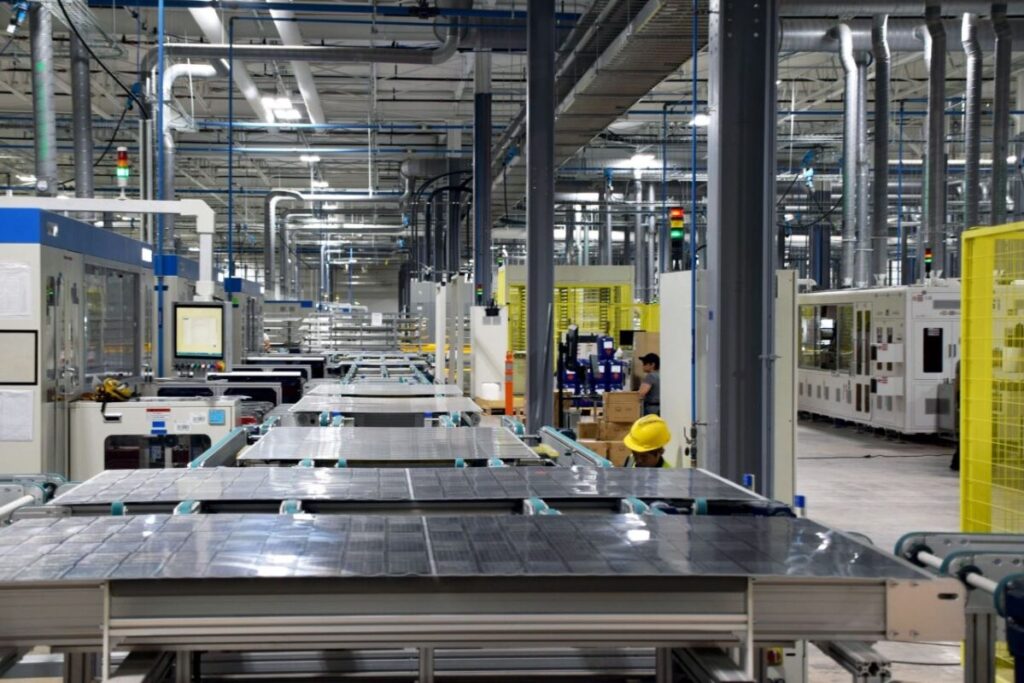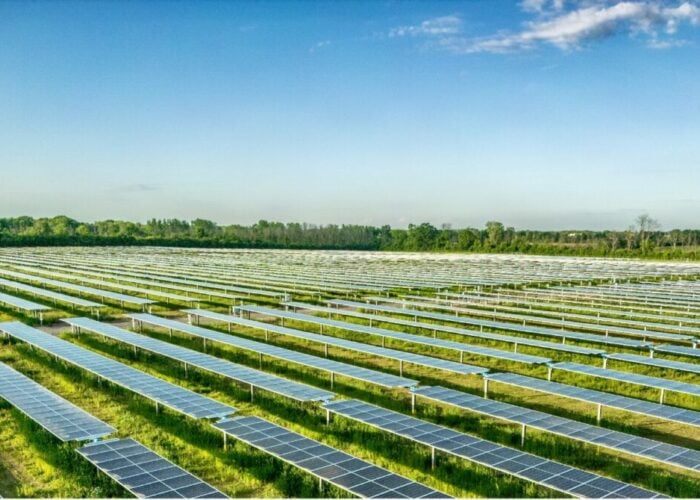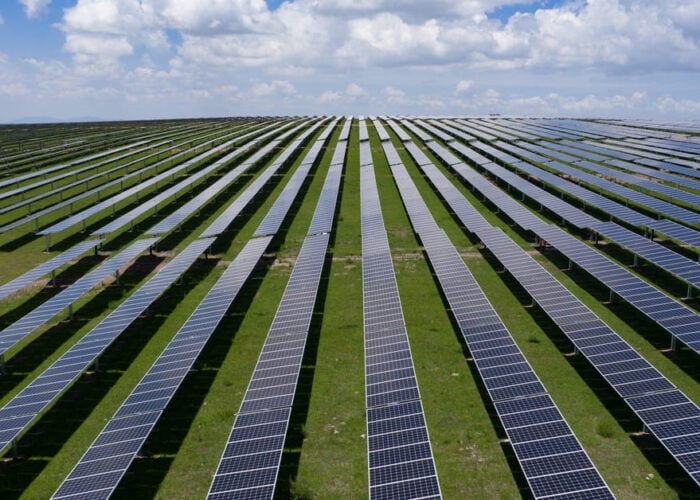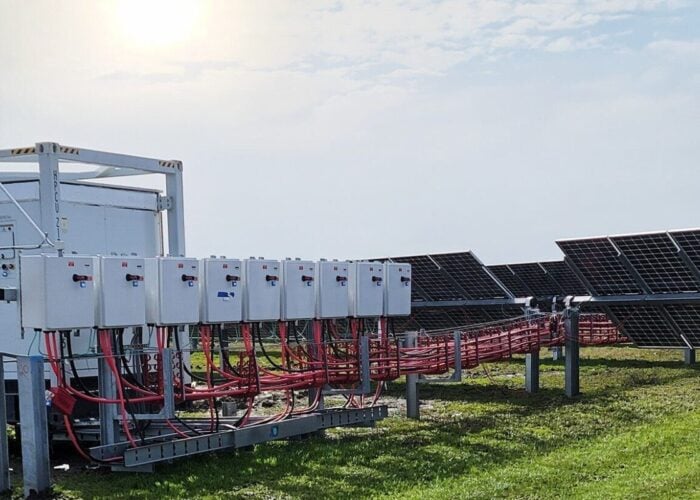
International solar manufacturer Canadian Solar has posted stable financials in Q3 2025, as its solar PV module and battery energy storage system (BESS) sales shift.
The company posted US$256 million in gross profit in Q3, compared with US$505 million in Q2 and US$247 million in Q3 2024. Gross margin was 17.2%, down from 29.8% sequentially and up from 16.4% year-on-year (YoY).
Try Premium for just $1
- Full premium access for the first month at only $1
- Converts to an annual rate after 30 days unless cancelled
- Cancel anytime during the trial period
Premium Benefits
- Expert industry analysis and interviews
- Digital access to PV Tech Power journal
- Exclusive event discounts
Or get the full Premium subscription right away
Or continue reading this article for free
The company said the sequential decrease in margin was due to the absence of profit released from the sales-type leasing of a US-based project in Q2, and the YoY increase was down to increased BESS sales, which have had a better margin than solar PV modules.
Simultaneously, earnings per share recorded a loss of US$0.58 per share, equating to a net loss attributable to Canadian Solar of US$26 million. Losses increased slightly from US$23 million (US$0.53 per share) in Q2 2025.
Net income was US$9 million in Q3, and net revenues reached US$1.5 billion, at the high end of the company’s guidance for the period but down both sequentially and YoY. Canadian Solar ended September 2025 with net cash flow of US$112 million, driven by decreases in inventory from the prior quarter. Total debt was US$6.4 billion, an increase from US$6.3 billion in Q2.
Solar sales slump, storage surges
CEO Shawn Qu said: “We are managing the business with discipline, prioritising profitability and investing strategically to ensure the resilience of our operations. I am pleased to share that our residential energy storage business is on track to become profitable in 2025.”
Canadian Solar’s lowered net revenue was due to decreased solar module sales, partially offset by increases in the battery storage sector. Its solar manufacturing subsidiary, CSI Solar, shipped 5.1GW of modules in Q3 2025, down notably from 7.9GW in Q2 this year.
Its e-Storage arm shipped a “record” 2.7GWh of BESS in Q3, above its guidance of 2.1GWh – 2.3GWh.
The US was the top country for CSI Solar shipments in Q3 2025, followed by China Spain, Pakistan, and South Africa. Qu said the firm would “continue to focus on profitable solar markets and to manage volumes in less profitable regions. In contrast, demand for energy storage remains robust, supported by healthy market fundamentals and growing applications.”
US manufacturing plans
By the end of 2026, the company expects to be producing solar cells and lithium batteries in the US. Phase one of its Indiana cell facility is expected to begin production in March 2026, and its Kentucky lithium battery factory is slated to start production in December next year. The company already operates a 5GW module production facility in Mesquite, Texas.
Back in its Q1 2025 results, CSI Solar said it was considering relocating “certain” manufacturing operations as a result of US president Donald Trump’s global tariff regime. It said it might move some operations to “low-tariff regions” in addition to leaning into its US-based manufacturing plans, given the pressure that Trump’s tariffs and other solar import restrictions have put on upstream supply components for US production.
In the company’s earnings call, Qu said Canadian Solar expected to be able to meet the Foreign Entity of Concern (FEOC) requirements for solar shipments to the US, which limit exposure from China-based or Chinese-backed companies.
It made no mention of these plans in the Q3 results, though the ongoing low margins in the solar manufacturing sector have continued to push a greater focus on energy storage manufacturing.
Yan Zhuang, CSI Solar president, said: “We delivered a sequentially higher share of module shipments to the profitable North American market. Our Mesquite factory, which has now successfully ramped up, contributed meaningfully to both shipment volume and profitability.”
He continued: “While our US$3.1 billion utility-scale storage backlog provides line of sight to future growth, we also continue to develop our offerings and capabilities in C&I and residential storage, segments which we expect will contribute more meaningfully to profitability next year. Looking ahead, we expect further profitability improvements, as we begin production of solar cells and lithium battery energy storage products in the US.”
In Q4, the company expects PV module shipments between 4.6GW and 4.8GW, with between 2.1GWh and 2.3GWh of BESS shipments. CSI Solar forecasts 25-30GW of module shipments for all of 2025. Revenues for Q4 are forecast between US£1.3 billion and US$1.5 billion.






